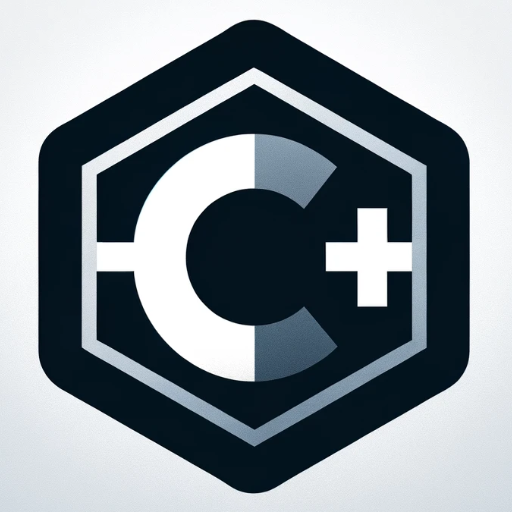C-AI-powered C programming assistant
Enhance your coding skills with AI
I assist with C programming, focusing on databases and algorithms.
How do I create a database in C?
Show me an algorithm for sorting in C.
Explain pointers in C.
Help me optimize this C code snippet.
Related Tools

code: python java c html sql javascript react web+
The worlds most powerful coding assistant.

C# Expert
Advanced C# programming insights and best practices

C++
Get help from an expert in C++ coding, trained on hundreds of the most difficult C++ challenges. Start with a quest! ⬇🧑💻 (V1.7)

Advanced Java Assistant
A friendly Java programming assistant, ready to assist you.

C# (Csharp)
Your personal highly sophisticated C# (Csharp) language copilot, with a focus on efficient, scalable and high-quality production C# code.

JAVA CODER
Expert in Data Structures and Algorithms in Java
20.0 / 5 (200 votes)
Introduction to C Programming Language
C is a general-purpose programming language developed by Dennis Ritchie in 1972 at Bell Labs. It was designed with systems programming in mind, particularly to develop the UNIX operating system. C's design emphasizes performance, efficiency, and low-level access to memory, making it ideal for system-level programming. The language's syntax is simple and follows a structured approach, enabling the development of complex programs with clear and maintainable code. C has become foundational in the development of many other modern languages such as C++, Java, and Python. Its portability and ability to interact directly with hardware have made it a staple in embedded systems, operating systems, and high-performance applications. Example: Consider writing a program to handle file input/output operations. In C, you have direct access to manipulate bytes, which allows for efficient file handling. For instance, opening a binary file and reading its contents into memory can be done with minimal overhead, which is crucial in scenarios like developing a database engine or a file system. Scenario: The creation of operating systems is a prime example of C's application. The UNIX operating system, originally written in assembly language, was re-implemented in C. This allowed the system to be more portable and easier to maintain. Even today, many parts of modern operating systems, including Linux, are written in C.

Core Functions and Capabilities of C
Memory Management
Example
Using malloc() to dynamically allocate memory during runtime.
Scenario
In real-time systems or embedded programming, memory resources are limited and must be managed dynamically. C allows programmers to allocate and free memory as needed, which is crucial for applications where memory efficiency is paramount, such as in device drivers or real-time data processing.
Pointer Arithmetic
Example
Manipulating arrays through pointer arithmetic.
Scenario
In low-level hardware interfacing, such as writing firmware for microcontrollers, accessing and manipulating hardware registers directly via memory addresses is often required. C's pointer arithmetic allows developers to directly interact with memory, providing the control necessary for such tasks.
Bitwise Operations
Example
Using bitwise AND, OR, XOR for setting or clearing specific bits in a byte.
Scenario
In embedded systems, it is often necessary to manipulate individual bits within a byte for setting flags, controlling hardware, or optimizing data storage. For instance, controlling an LED on a microcontroller might involve setting a particular bit in a control register, which can be efficiently managed using C’s bitwise operations.
Ideal Users of C Programming Language
System Programmers
System programmers who develop operating systems, drivers, or embedded systems benefit greatly from C's efficiency and control over hardware.
Embedded Systems Engineers
Embedded systems engineers use C to develop software that directly interacts with hardware due to its ability to provide low-level memory access and control.
Performance-oriented Developers
Developers focusing on performance-critical applications, such as high-frequency trading systems or real-time data processing, use C for its speed and efficiency.

How to Use C
Step 1
Visit aichatonline.org for a free trial without login, also no need for ChatGPT Plus.
Step 2
Install a C compiler like GCC, or use an integrated development environment (IDE) such as Code::Blocks or Visual Studio, which includes a C compiler.
Step 3
Familiarize yourself with the basics of C syntax, including data types, control structures, functions, and pointers. Refer to online tutorials, books, or courses for structured learning.
Step 4
Start coding simple programs to practice, such as 'Hello, World!' and basic algorithms. Gradually move on to more complex projects like data structures and file handling to enhance your skills.
Step 5
Compile and debug your programs regularly to check for errors and optimize code performance. Utilize tools like Valgrind for memory leak detection and GDB for debugging.
Try other advanced and practical GPTs
C# Expert
AI-powered C# expertise on demand.
Create Similar Image / Picture with AI
AI-Powered Image Replication at Your Fingertips.

Character Creator
AI-powered character creation and editing

哄哄模拟器
AI-powered simulator for calming conflicts.

产品起名帮助器
AI-driven product names for success

代码助手
AI-powered coding assistance for everyone

Simpsonize Me
AI-powered insights and detailed content generation.

Image to Cartoon
AI-Powered Pixar-Style Transformations

Cartoon Images Generator
AI-driven cartoon creation made simple.

DOMAIN COMPOSER
AI-Powered Domain Insights and Valuation.

Website Instantly [Multipage]
AI-powered multipage website creator
![Website Instantly [Multipage]](https://files.oaiusercontent.com/file-9P4NhIxlr14rKlHEM41VVbxS?se=2124-03-21T08%3A51%3A45Z&sp=r&sv=2021-08-06&sr=b&rscc=max-age%3D1209600%2C%20immutable&rscd=attachment%3B%20filename%3Dsdfgasdfx.jpg&sig=8xHssdF2qgY0qpyaUNRn4My5tJwh9iYMn1Lg53H9Z1c%3D)
Brand Name & Domain Generator
AI-powered brand naming and domain search.
- Algorithm Development
- System Programming
- Embedded Systems
- Software Engineering
- Low-level Programming
Q&A About Using C
What is C mainly used for?
C is widely used for system programming, developing operating systems, embedded systems, and performance-critical applications. Its efficiency and control over system resources make it a popular choice for low-level programming.
How do I manage memory in C?
Memory management in C is done manually using functions like `malloc()`, `calloc()`, and `free()`. It's crucial to allocate and deallocate memory properly to avoid memory leaks and undefined behavior.
What is the difference between C and C++?
C is a procedural programming language, focused on functions and sequential code execution. C++ extends C with object-oriented features like classes and inheritance, enabling more complex and reusable code structures.
How do I handle errors in C?
Error handling in C typically involves checking the return values of functions, using `errno`, and handling errors gracefully with conditional statements. C lacks built-in exception handling, so you must manually handle error scenarios.
What are pointers in C and why are they important?
Pointers in C are variables that store memory addresses. They are crucial for dynamic memory allocation, array manipulation, and efficient function arguments handling, allowing direct access and modification of memory.